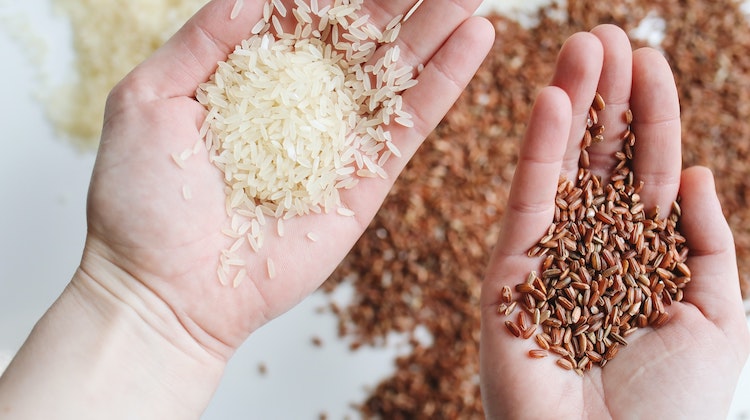

· By Alicia Stacey
Should You Take Psyllium Husk?
You may have come across the term 'psyllium husk", especially in reference to fiber supplements like Metamucil, but do you know what it actually is? This quick guide will explain what it does, and why you should probably add psyllium husk fiber to your diet if you want to get more fiber.
What is psyllium husk?
Psyllium (“silly-um”) husk comes from the seeds of a plant called Plantago ovata. The fiber derived from psyllium husk has been used for centuries because of its benefits for the digestive tract and overall health. These days, it’s a common ingredient in fiber supplements for those same reasons.
What does psyllium husk do for your body?
Psyllium husk is a soluble fiber, meaning it swells and turns into a gel-like substance when mixed with water. As it travels through the digestive tract, its gel-like properties allow it to absorb water and loose materials, improving the health of your gut and quality of your poop. It has tons of other advantages, too, that benefit heart health, skin and hair, immunity, and more.
Considering that psyllium husk can regulate your bowel movements, it’s a great addition to the diet of anyone dealing with irregularities.
Who should take psyllium husk?
People suffering from constipation, diarrhea, or other bowel movement irregularities.
Considering that psyllium husk can regulate your bowel movements, it’s a great addition to the diet of anyone dealing with irregularities. If you are constipated or don’t go at least once daily, psyllium husk can get things moving. If you go too much or suffer from diarrhea, the bulking action of psyllium husk in the gut can help.
Hemorrhoid patients.
Psyllium husk can relieve the discomfort of hemorrhoids, which are swollen veins in your rectum and anus that result from straining on the toilet. By improving the quality of bowel movements, psyllium husk fiber can help prevent the need to push when you poo, reducing painful pressure on hemorrhoids and the likelihood of new ones forming.
People looking to improve their heart health.
Psyllium husk is a soluble fiber, and studies show that diets including this type fiber can interfere with fat absorption in such a way that helps reduce levels of LDL cholesterol—“bad” cholesterol that can contribute to heart disease.
Some IBS patients.
By not fermenting in the gut the way some other fiber supplements do, psyllium husk can help manage symptoms for some IBS patients, including discomfort related to gas and bloating. If you have IBS and would like to try psyllium husk fiber, be sure to confirm with your doctor that you’re a good candidate to do so.
Diverticulitis patients.
Diverticulitis is a possible side effect of diverticulosis, a condition in which small pouches form on the intestines (a.k.a. diverticula). These pouches can become infected, leading to abdominal pain, nausea, fever, and/or constipation—this is known as diverticulitis. Psyllium can help prevent diverticulosis by easing bowel movements, reducing pressure on intestines that can lead to diverticulosis.
Psyllium husk can also help prevent diverticulitis by getting fecal matter through the gut more efficiently, allowing it to avoid getting into diverticula and contributing to infection.
People looking to maintain healthy blood glucose levels.
Soluble fiber can slow the rate at which carbohydrates are absorbed in the bloodstream, maintaining blood glucose at healthy levels.
Who should not take psyllium husk?
Even with its many benefits, there are some exceptions as to who should take psyllium husk. For example, people with allergies or sensitivities to psyllium should avoid taking psyllium husk fiber supplements. In addition, according to Mount Sinai, you should not take psyllium if you have bowel obstructions or spasms, difficulty swallowing, or restrictions of the esophagus or gastrointestinal tract.
As with any supplement, speak to your doctor before taking psyllium husk to be absolutely sure that it’s right for you. If it is, try an all-natural option, like Bellway fiber supplements—they’re made with just psyllium husk and real fruit, so you get the benefits of fiber without any artificial ingredients, sugar, or gluten.
